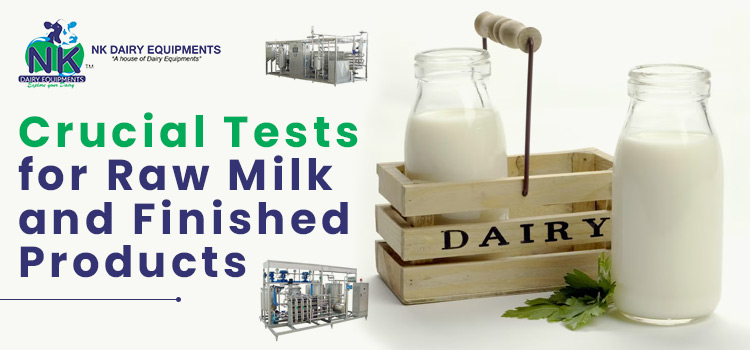When considering the dairy sector, ensuring the quality and safety of raw milk and finished products is of the most extreme significance. Dairy equipment manufacturers in India, for example, NK Dairy Equipments, play an important role in this process by giving high-level machineries like Khoya machines and Ghee plants.
In this blog, we will investigate the essential tests that dairy manufacturers ought to perform to ensure the best standards of raw milk and finished product quality.
- Sensory Evaluation
The first step in evaluating raw milk and final products is sensory evaluation. It entails inspecting the dairy products’ look, smell, taste, and texture. Dairy makers can discover any irregularities or off-flavors that may impair overall quality by using qualified experts or sensory panels.
- Microbiological Testing
Microbiological testing entails looking for bacteria, yeast, molds, and other microorganisms in raw milk and finished products. This test is critical for verifying that dairy products are free of pathogens and meet safety regulations. It reduces the risk of foodborne illness and ensures the product’s lifespan.
- Antibiotic Testing
Antibiotic testing is required to ensure product integrity. It identifies antibiotics in raw milk and final goods, ensuring that they are within acceptable limits. This test helps to prevent the consumption of antibiotic-contaminated milk and dairy products, hence protecting consumer health.
- Fat Content Analysis
The proportion of fat in raw milk and dairy products is determined by fat content analysis. It is essential for consistency and meeting product criteria. Dairy equipment manufacturers, such as NK Dairy Equipments, offer cutting-edge machineries such as Khoya machine and Ghee plants that enable accurate fat content measurement, facilitating the production of high-quality dairy products.
- Protein Analysis
Protein analysis determines the amount of protein in raw milk and finished products. It is a critical criterion for determining nutritional value and product quality. Dairy manufacturers may ensure that their products satisfy the desired protein levels and suit the nutritional demands of consumers by undertaking protein analysis.
- Residue Testing
Residue testing includes evaluating raw milk and finished products for the presence of pesticides, antibiotics, and different contaminants. It ensures that the dairy items are liberated from unsafe residues and comply with regulatory standards. Regular residue testing keeps up buyer confidence and maintains the reputation of dairy manufacturers.
Conclusion
Ensuring raw milk and finished product quality is a vital concern for dairy manufacturers. By carrying out the essential tests explained above, dairy equipment manufacturers, such as NK Dairy Equipments, can support the production of excellent dairy items, including Khoya and Ghee.
The Ghee Plant plays a vital role in the production of high-quality ghee. By staying focused on these tests, dairy manufacturers could meet buyer expectations at any point as well as keep up with regulatory compliance and build areas of strength for the business.
Through constant advancements in dairy equipment and severe quality control gauges, the Indian dairy area can flourish while ensuring the prosperity and fulfillment of consumers.




